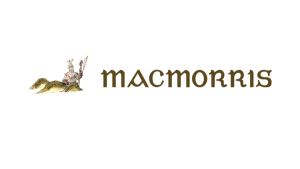Congratulations to Professor David Baker and his fellow collaborators for the official launching of MACMORRIS! MACMORRIS (Mapping Actors & Contexts: Modeling Research in Renaissance Ireland in the Sixteenth and Seventeenth Century) is a digital project that seeks to “capture the complexity and richness of early modern Ireland, by mapping the full range of cultural activity, across languages and ethnic groups, from 1541 to 1660. This largely bilingual resource provides the first inclusive account of creative, scholarly, and intellectual activity in a time of conquest, plantation, and colonization.”
This project emerged from a conversation between Professors Baker, Patricia Palmer, and Willy Maley at the 2015 conference for the International Spenser Society in Dublin. After a few years of trying out the idea behind MACMORRIS with colleagues and brainstorming its technical implications, their panel discussion rapidly developed into a fully fledged project.
A year after the conference, Professor Baker began a semester as a Digital Innovation Lab Faculty Fellow at the Institute for the Arts and Humanities at UNC-CH, as well as a two-week workshop at the Folger Shakespeare Library, “Early Modern Agendas: Network Analysis,” in 2017. In 2018, Prof. Palmer and Prof. Baker worked on a grant application to the Irish Research Council, which Prof. Palmer won in 2019. She was named “Advanced Laureate” and awarded € 1,000,000 over four years to build MACMORRIS. She then assembled a team at Maynooth University and work began.
During this time, Prof. Baker worked with the team and gave talks about the project:
“I spoke about MACMORRIS at Nanyang Technical University in Singapore, at the University of Hawai`i, Mānoa, at Marsh’s Library in Dublin, at Maynooth University, at Queen’s University in Belfast, and here at Carolina (three times). Maley, Palmer, and I also spread the word through joint publications: ‘What Ish My Network? Introducing MACMORRIS: Digitising Cultural Activity and Collaborative Networks in Early Modern Ireland” in Literature Compass and “Enter MACMORRIS’ in the Dublin Review.”
As the project quickly progressed, it was unfortunately delayed by the COVID-19 pandemic:
“If things had gone according to schedule, the MACMORRIS team would have been done with the ‘back end’ of the project (assembling the database) by 2020 and would then be ready for the ‘front end’ (website design). In 2019, I applied for a Fulbright U. S. Scholar Award, which I received in 2020: € 21,000 to work on MACMORRIS at Maynooth University over six months, starting in the spring of 2021. But things did not go according to schedule. COVID hit, and my stay was postponed by the Fulbright program until the fall. I arrived in Ireland in August. Over the next half year, I lived in Dublin and commuted to Maynooth. COVID had delayed our production schedule, but we were able to get a lot done, as we’d hoped. I especially appreciate having a hand in the design—the ‘look’—of MACMORRIS.”
In speaking to the most challenging and rewarding aspects of this project, Dr. Baker said:
“The most challenging and rewarding parts were the same part: working with a team. As literary critics, we usually labor alone, applying ourselves to texts while keeping a body of criticism in mind. A project like MACMORRIS requires collaboration between people with quite different skills and knowledge. For instance, just to begin, we needed a translator, a programmer, a designer—and we had to think about the specific history of a very complicated place and time–early modern Ireland–which, of course, we approached from different angles.
“For me, it was deeply satisfying to see our team come together around a coherent vision. MACMORRIS, as Pat likes to say, is a “cultural recovery” project that brings, insofar as it can, an almost lost milieu back into focus for present-day scholars and students. It’s accessible, useful, and information-rich. And it looks good, too!”


